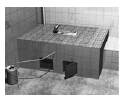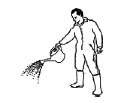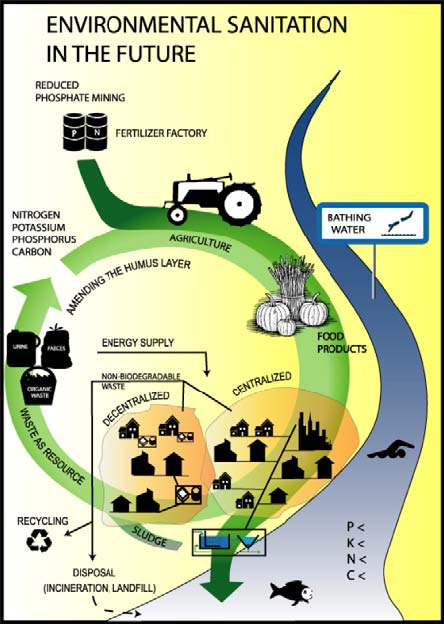Ecological Sanitation
Protecting the environment and conserving resources 1, 2
The ecological sanitation approach is based on the principle that human excreta should be considered as a resource rather than waste. Human excreta should be treated in order to avoid disease transmission and recovered in agriculture in order to recycle nutrients and organic matter. This reduces pollution caused by sewage being discharged or seeping into water resources. Moreover, recovering human waste returns nutrients to soil and plants and hence reduces the need for chemical fertilizers. In comparison to the “flushand- discharge” system, this approach also enables to save water as excreta carrier.
Nutrients recovered from human excreta can be used to enhance the productivity of horticulture and agriculture in home gardens and farms, in urban as well as rural areas. Even where it may be unfeasible to transport recovered excreta to distant farmland, it may be used to restore ecologically degraded non-agricultural lands to create parks and green spaces. See use of ecosan products...









